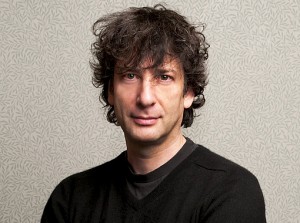Yesterday, CBLDF-sponsored Kids’ Right to Read Project sent a letter to the Superintendent of Alamogordo Public Schools to defend Neil Gaiman’s Neverwhere, which has been removed from shelves for review after a parent protested a passage in the book.
CBLDF reached out to Mr. Gaiman to get his thoughts on the ban:
I’m obviously disappointed that the parent in question didn’t talk to the teacher or accept the teacher’s offer of an alternative book for her daughter, and has instead worked to stop anyone else’s children reading a book that’s been in the school system successfully for almost a decade. On the other hand I’m impressed that this parent has managed to find sex and violence in Neverwhere that everyone else had somehow missed — including the entire city of Chicago, when they made Neverwhere the book that was read by adults and children alike all through the city in Spring 2011’s ONE BOOK ONE CHICAGO program.
But mostly I feel sorry for anyone excited enough by the banning to go to Neverwhere in search of “R-Rated” action. It’s a fine adventure, I think, with some sensible social points, and perhaps some good jokes and characters — but it’s very gentle stuff.
Nancy Wilmott filed a complaint over the book, claiming the content was “rated R” and inappropriate for her 15-year-old daughter. CBLDF learned of the removal late last week after a biased news report by CBS affiliate KRQE News 13 in Albuquerque, New Mexico, was posted online. (You can view the report here.)
Neverwhere has been on the school’s reading list since 2004, but this is the first complaint it has received. Wilmott’s complaint is not focused on the work as a whole, only on the content on p. 86; no other passages appear to be under contention.
The school has a waiver system by which another book can be selected, but Wilmott claims that she was not given the opportunity for a waiver until after her daughter began reading the book. The instructor of the course assigned a new book to Wilmott’s daughter after she learned of the complaint through indirect channels, but at no point was the instructor approached by the parent. Wilmott took her complaint directly to the administration.
In defending the work, CBLDF’s letter echoes Gaiman’s concerns over allowing one parent to determine what is appropriate reading material for the entire community:
While parents are free to request an alternative assignment for their children, they have no right to impose their views on others or to demand that otherwise educationally worthy materials be removed, merely because they consider them objectionable, offensive, or inappropriate. To go further and remove the book potentially violates the constitutional rights of other students and parents. What’s more, the practical effect of acceding to any parent’s request to censor materials will be to invite more challenges, and to leave school officials vulnerable to multiple, possibly conflicting demands.
Mr. Gaiman is a staunch advocate for the freedom to read and has frequently defended comics, books, libraries, and even what some might consider “icky speech.” Just this week, he gave a lecture for The Reading Agency, a British charity that advocates for reading. As we were learning more about the Neverwhere ban here in the United States, Mr. Gaiman was in London, defending books and libraries:
I don’t think there is such a thing as a bad book for children. Every now and again it becomes fashionable among some adults to point at a subset of children’s books, a genre, perhaps, or an author, and to declare them bad books, books that children should be stopped from reading. I’ve seen it happen over and over; Enid Blyton was declared a bad author, so was RL Stine, so were dozens of others. Comics have been decried as fostering illiteracy.
It’s tosh. It’s snobbery and it’s foolishness…
Mr. Gaiman also spoke about how the good intentions of some adults — including the parents who would ban books — is detrimental to the love of reading:
Well-meaning adults can easily destroy a child’s love of reading: stop them reading what they enjoy, or give them worthy-but-dull books that you like, the 21st-century equivalents of Victorian “improving” literature. You’ll wind up with a generation convinced that reading is uncool and worse, unpleasant.
You can read the entirety of Mr. Gaiman’s lecture here. CBLDF thanks Mr. Gaiman for taking the time to share his thoughts on the Neverwhere ban. We’ll be following the challenge closely, so return to CBLDF.org for updates.
Please help support CBLDF’s important First Amendment work by making a donation or becoming a member of CBLDF!
Betsy Gomez is the Web Editor for CBLDF.
